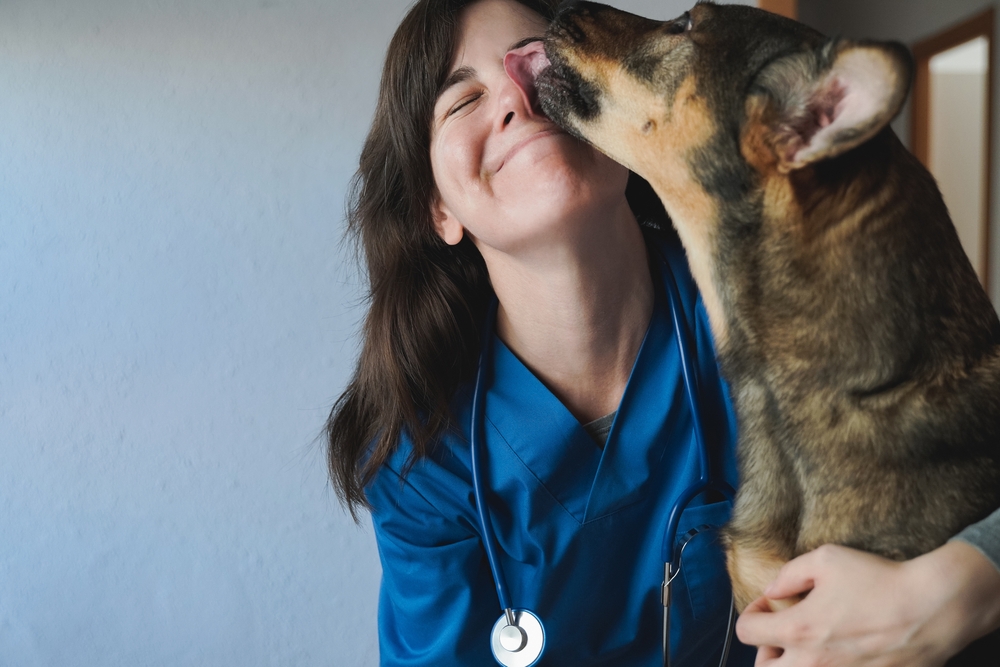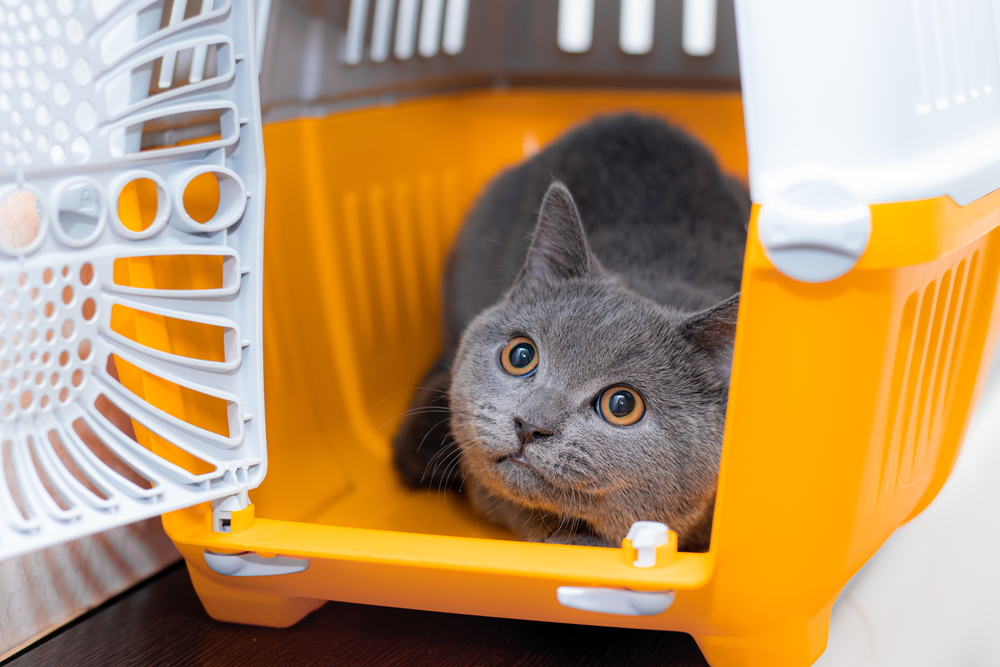Visiting the veterinary clinic can be a stressful experience for pets and their owners. However, wellness exams are critical to maintaining and enhancing your furry friend’s health. With a greater understanding of pet behavior and emotional well-being, you can improve your furry pal’s veterinary visit and relieve their anxiety. Our Memorial Animal Hospital team explains various strategies and techniques that you should learn to create a more positive experience for you and your pet.
Understanding stress in pets
White coat syndrome, or an intense fear of visiting doctors, is true for many people. Pets, like people, can experience anxiety and stress in unfamiliar or uncomfortable situations—often if they are being handled. Pets’ common stress signs include panting, pacing, vocalizing, hiding, and aggressive behaviors. These stress responses affect your pet’s well-being and can prevent our team from making an accurate diagnosis and providing effective treatment, so we encourage you to take proactive intervention to help your furry pal cope during a veterinary exam.
Why reducing stress in pets matters
Creating a low-stress environment is crucial for effective veterinary care. When pets are calm, they are easier to examine, allowing our team to administer treatments and obtain accurate health assessments. Moreover, by helping reduce your furry pal’s stress, you can improve the overall experience, making your pet more cooperative and enabling you to feel satisfied with the care we provide your four-legged friend.
Strategies for low-stress veterinary visits
You can use many strategies before your pet’s appointment to prepare them emotionally for their exam. Our team recommends the following methods:
- Carrier familiarization — You can help your furry pal become accustomed to the carrier or crate by gradually and positively introducing them. Placing familiar items in the carrier, such as a favorite blanket or toy, can help your pet associate the carrier with a safe place.
- Practice trips — Taking your pet on short car rides that do not end at the vet helps prevent them from associating the car with stressful experiences. Consider fun options such as taking them to the park or to the pet supply store for a new toy.
- Desensitization — Training your pet to become comfortable with handling and touch can make veterinary exams less intimidating. Practice handling your pet daily, focusing on sensitive areas such as their paws, nose, ears, and nails.
- Calming pheromones — Products, such as Feliway for cats and Adaptil for dogs, can help create a calming atmosphere during the car ride and at our hospital.
- Positive association — Bring your pet’s treats, toys, and a cherished blanket when visiting our hospital. Familiar items from home can help soothe your anxious pet. Give your furry friend a treat during the exam and praise them for their excellent behavior and cooperation. Positive reinforcement goes a long way in helping your pet cooperate with our team during wellness visits.
- Calm owner, calm pet — Remember, your pet can pick up on your emotions, so if you are stressed, they are, too. Try to remain calm, cool, and collected, even when your pet is anxious. By remaining positive, your four-legged friend is more likely to relax.
Low-stress environment for pets

Having distinct waiting areas for cats and dogs can minimize stress caused by interspecies interactions. Our Memorial Animal Hospital is a feline-friendly practice that uses low-stress handling techniques for both our canine and feline patients. We are skilled in handling even the most difficult fear and anxiety cases, and we minimize these fears by offering a calm, quiet hospital environment.
Our team encourages you to schedule a relaxing drop-by visit to give your furry friend a chance to smell, see, and experience our hospital before their physical exam. These friendly visits create a positive association and familiarize your pet with our hospital and staff.
Low-stress veterinary visits are beneficial for pets, owners, and veterinary professionals. By implementing strategies that help reduce anxiety and stress, you help improve your four-legged friend’s overall experience and health outcomes. Over time, your furry pal may even come to enjoy their wellness visits. Contact our Memorial Animal Hospital team if your pet is struggling with anxiety or fear.






Leave A Comment